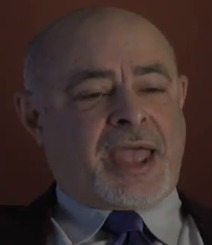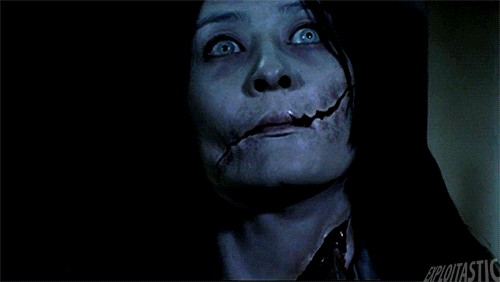Psychiatrists testify in nail gun murder: Defense says Williams didn't know what he was doing
Published: November 15, 2008
 |
| Dr. Shipko can evaluate people without even actually seeing them |
Shipko stated that the accused suffered from "cold turkey withdrawl" of the anti-depressant medication Paxil, which caused an altered state of consciousness for Williams when he committed the murder.
Shipko made the outlandish claim despite admitting in court that he didn't bother even meeting the accused for any form of evaluation as required as the minimal standard of care for any physician with a patient for a medical evaluation.
Here is exactly what the court record said about Dr. Shipko's testimony: "Dr. Stuart Shipko formed his opinions in this case by reading police reports, reports by defendant’s psychiatrist and Dr. Roeder, a pyschologist, and by reading a transcript of defendant’s initial trial testimony, but he never met defendant.”
According to the U.S. Food and Drug Administration, possible side-effects of Paxil use include changes in mood, suicidal thoughts or actions when the drug is first taken or when the dose is changed; however, there is no mention by the FDA, or any credible scientific report for that matter, of Paxil causing homicidal thoughts or actions.
It looks like Shipko "phone it in" for the money to be an expert witness with his reputation on the line, again.
Thousand Oaks Acorn
Kidnapper found guilty in Lake Sherwood incident
Published: August 3, 2006
 |
| Dr. Stuart Shipko has no forensic psychiatric training or experience |
The crimes occurred on June 7, 2005, after Shellhouse traveled from Alabama to Lake Sherwood to carry out a kidnap-ransom plan with a gun on Jamie Burtzloff, a 35 year old female. Shellhouse posed as a courier delivering legal documents to gain entry into a gated community and the Burtzloff residence.
When Shellhouse failed to force Burtzloff into his van, Shellhouse fled in his van without Burtzloff and led police on a two-hour chase through several Southland counties. The pursuit ended in a four-hour standoff with the LA Sheriff's SWAT team on the 10 Freeway in Alhambra, during which he threatened to commit suicide.
Stuart Shipko, acting as Shellhouse's expert psychiatric witness, testified that Shellhouse was acting under a Prozac-and-prednisone-induced mania; however, Dr. Shipko's testimony was largely discredited.
Court testimony revealed that Dr. Shipko had no prior forensic experience or training, and his explanation of "prescription-medicine-induced-psychosis" was largely laughed off the witness stand.
Today, Dr. Shipko still advertises himself on forensic psychiatry websites claiming to have "considerable experience in expert testimony", despite having no training in the field.
The Reporter
Ranteesi convicted of murder
Published: July 20, 2006
 |
| Dr. Shipko continues to rant endlessly about Paxil |
The couple had been arguing over whether their teenage daughter, Rachal, could visit her relatives for the weekend in Burlingame, CA.
The couple had been separated since 2001 after Milia, a corrections officer at the Yolo County Jail, became involved in a relationship with an inmate there.
The inmate, a former Iraqi soldier, became an obsession for Ranteesi, who imagined the man was a double agent working for Saddam Hussein, Osama bin Laden, the CIA and the FBI.
Several psychiatric experts called in the case said Ranteesi suffered from delusional persecutions; however, Dr. Stuart Shipko was the sole holdout, claiming instead that an anti-depressant medication that Ranteesi was taking at the time, Paxil, made him kill his wife.
Does Dr. Shipko know any other psychiatric diagnoses he can ascribe to his paying clients? Because this same, hackneyed legal defense, "Paxil made them do it!" has been used over and over again by Shipko in all his forensic cases, one has to wonder if he knows anything about psychiatry at all.
Needless to say, Ranteesi was denied his petition to appeal and will serve a 26-years to life sentence in prison.
The Lantern
Tolliver convicted in student’s death
Published: June 24, 2002
 |
| Convicted murderer Kevin Alan Tolliver |
“She didn’t mean it,” Tolliver told police. “She was in the middle of a sentence when she accidentally shot herself. I feel it’s my fault, because she didn’t know the gun was loaded.”
Tolliver also left a note in Schneider’s apartment, stating, “She did not know gun was loaded.”
The Franklin County Deputy Coroner testified that Schneider was shot in the mouth from a gun held and fired outside her mouth.
Tolliver then changed his story saying that Schneider committed suicide due to severe Paxil withdrawal, and got disreputable psychiatrist Stuart Shipko to back up his “theory,” despite the fact that Dr. Shipko never even met the deceased to even determine if she had any suicidal tendencies to begin with.
“Based on the information available,” Shipko opined, “it seems that there is ample information to suggest that Paxil was the problem.”
Shipko went on to add more outlandish speculations about the victim on behalf of Tolliver in a follow-up correspondence in 2011 on a second appeal to the Ohio State Court of Appeals, “[W]ithin a reasonable medical certainty, Paxil withdrawal significantly contributed to Claire Schneider engaging in an impulsive suicidal gesture that resulted in her death. ...The information from the coroner describes a gunshot wound consistent with a suicide.”
Thus, Dr. Shipko has the ability to know what people, whom he never met or who are long deceased, were thinking and going to do, solely based on the medications they were taking. The only problem here is that you can't diagnose people who are deceased with psychiatric conditions since dead people cannot be examined by psychiatrists to make any kind of determination.
And it appears he can correct forensic mistakes made by trained coroners who ruled that the shooting looked unusual for a suicide. What an A-hole!


This web site is obviously run by someone who has an axe to grind. Going after Dr. Shipko over one case suggests a vindictive motive. He was simply presenting an alternative view of the case and asserting the accused's right to a defense.
ReplyDelete